Basic measurement concepts Measurement Worksheets for Ages 6-7
5 filtered results
-
From - To
Explore our engaging Basic Measurement Concepts Worksheets designed for ages 6-7! These worksheets introduce young learners to essential measurement skills, helping them understand concepts such as length, weight, and volume through fun, interactive activities. Our resources encourage hands-on learning with practical examples, allowing children to connect real-life scenarios with mathematical concepts. Perfect for classroom use or at-home practicing, these worksheets aim to build a solid foundation in measurement while developing critical thinking and problem-solving abilities. Foster your child's confidence in math with easy-to-follow instructions and colorful visuals that make learning measurement enjoyable and effective. Start measuring success today!
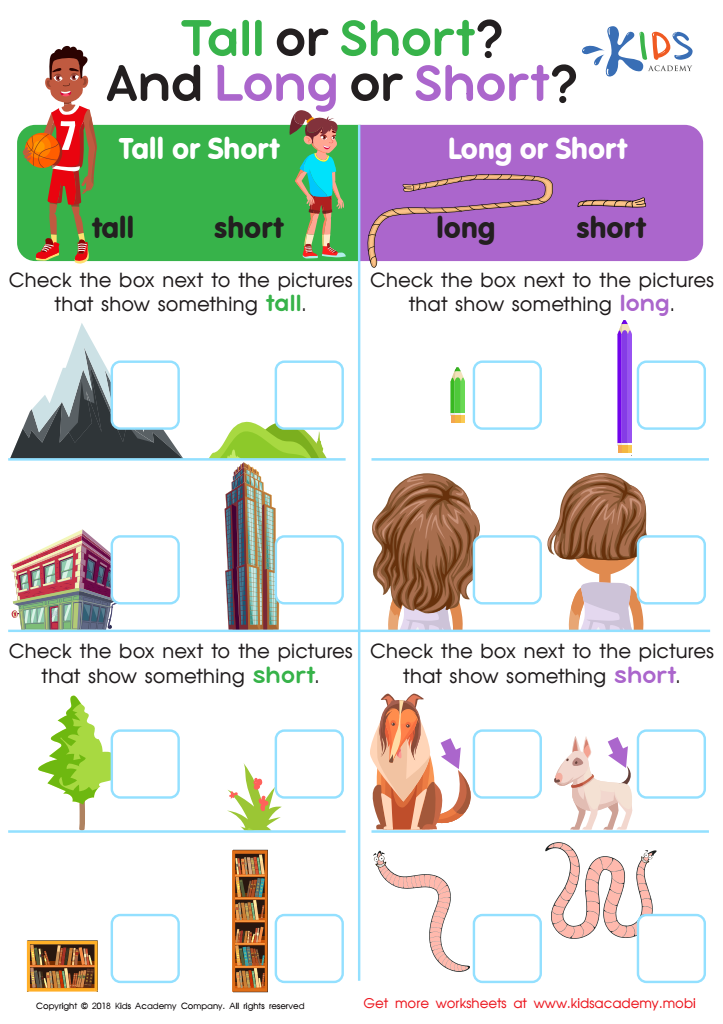

Tall or Short and Long or Short? Worksheet
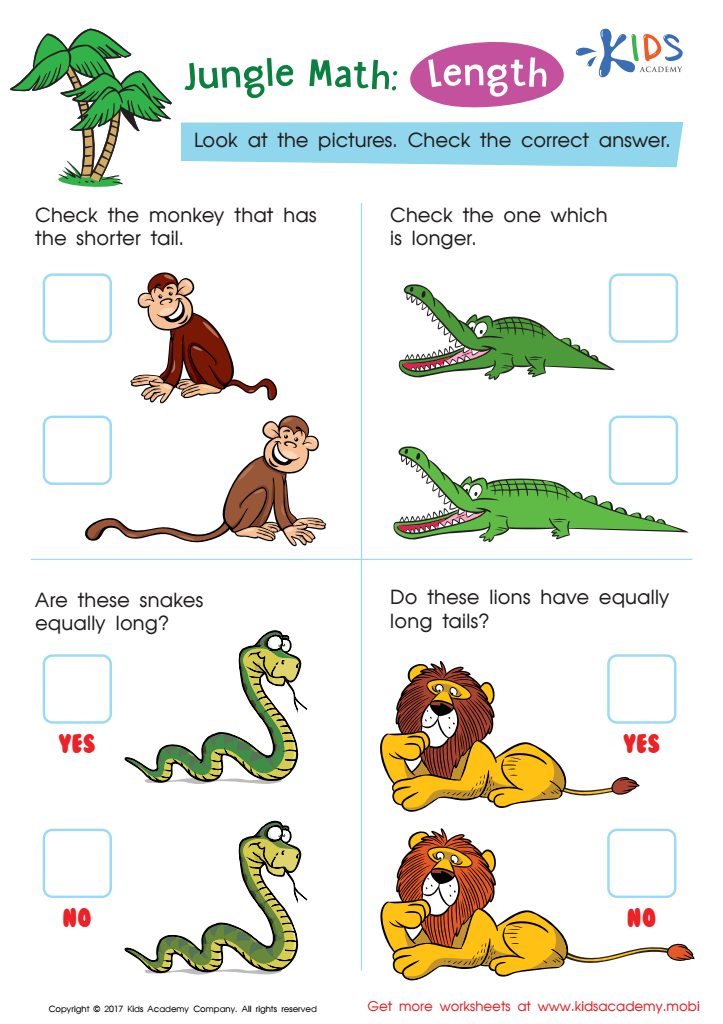

Which One Is Longer - Length Worksheet
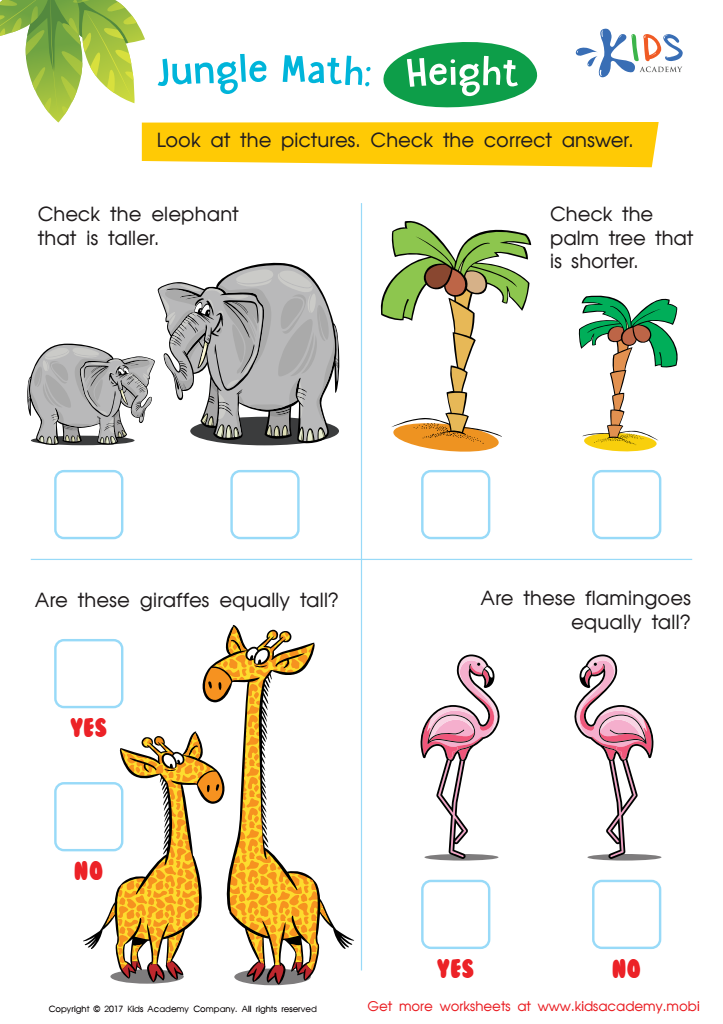

Which Is Taller Worksheet
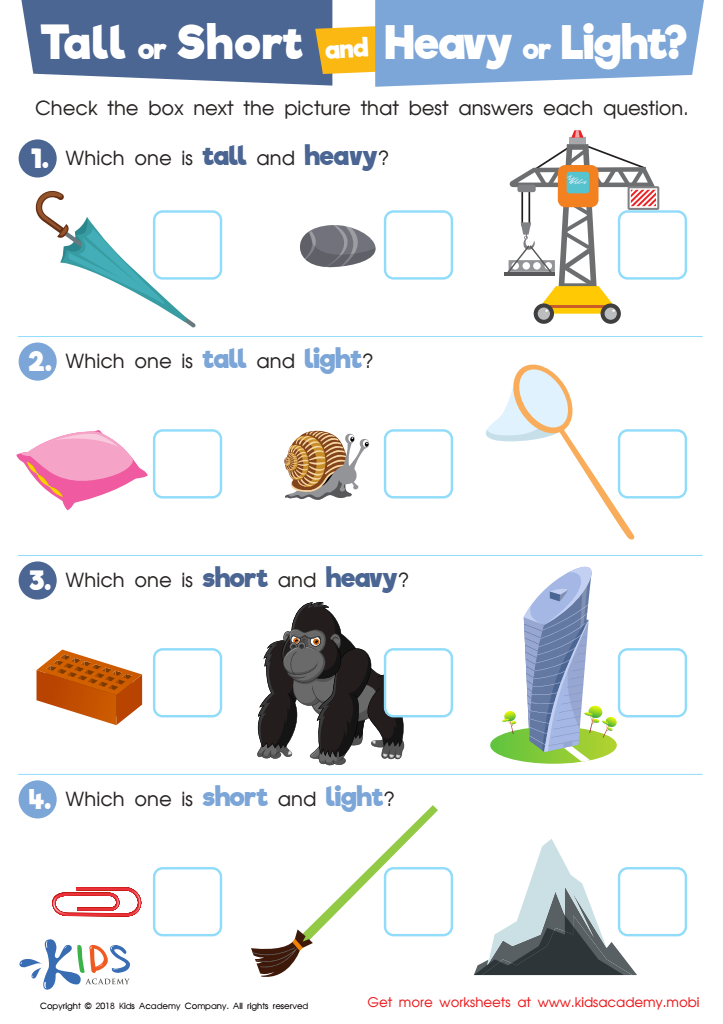

Tall or Short and Heavy or Light? Worksheet
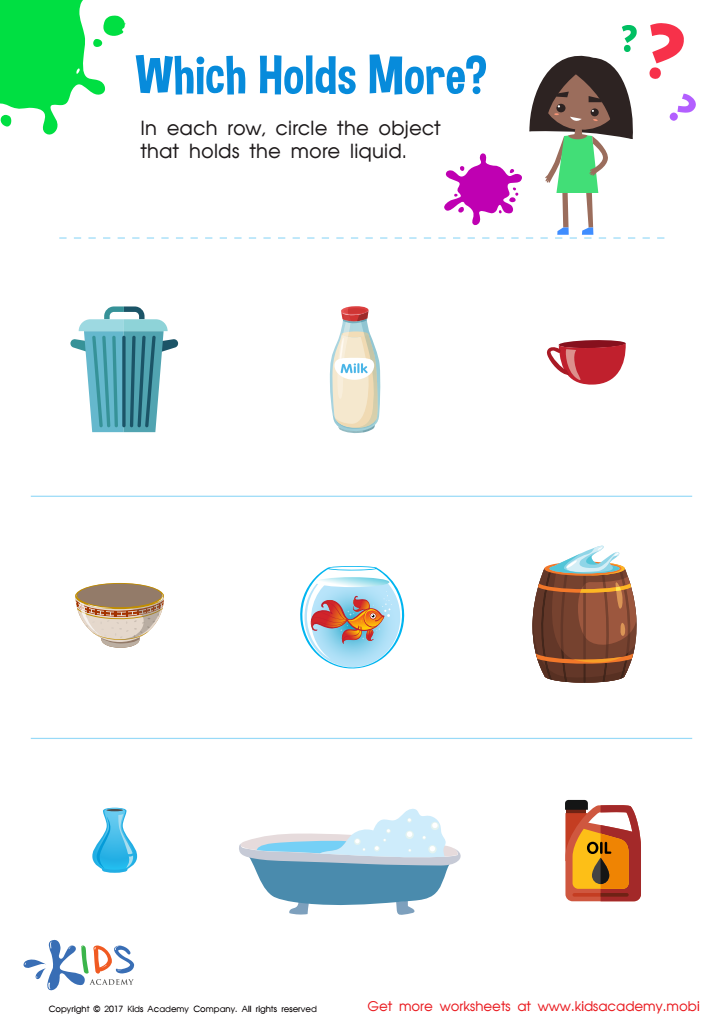

Which Holds More: Capacity Worksheet
Parents and teachers should care about basic measurement concepts for children aged 6-7 because these foundational skills are crucial in early childhood development. At this age, children are naturally curious and eager to explore the world around them. Understanding measurement—such as length, weight, and volume—helps children make sense of their environment, enhancing their reasoning and problem-solving abilities.
By introducing concepts like comparing sizes, counting, and estimating, educators can foster critical thinking. Measurement activities can be seamlessly integrated into everyday activities, such as cooking, gardening, or even playtime, making learning relatable and engaging. This hands-on approach not only reinforces mathematical concepts but also builds a strong literacy foundation as children learn to communicate their findings.
Moreover, basic measurement skills prepare children for more complex mathematical concepts as they progress in their education, setting the stage for success in future learning. By focusing on measurement at this early age, parents and teachers can also encourage a growth mindset, helping children understand that making mistakes is part of learning. Ultimately, emphasizing measurement concepts empowers young learners with the skills they need to navigate their world, making math a meaningful and enjoyable part of their lives.
 Assign to My Students
Assign to My Students
















